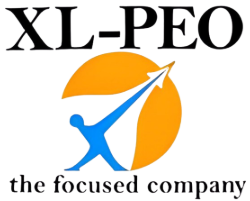
Understanding Workers’ Compensation
Workers’ compensation is a type of insurance that provides financial benefits to employees who are injured or become ill while on the job. It covers medical expenses, lost wages, and disability benefits. For employers, workers’ compensation insurance is mandatory in most states.
The Role of PEOs in Workers’ Compensation
Professional Employer Organizations (PEOs) can play a significant role in managing workers’ compensation risks for their client companies. Here’s how:
- Risk Management: PEOs often have experience in risk management and can implement strategies to prevent workplace accidents and injuries. This can lead to lower workers’ compensation premiums.
- Claim Management: PEOs can handle the claims process, ensuring that claims are filed correctly and processed efficiently. This can help to reduce the overall cost of claims.
- Compliance: PEOs can help businesses comply with workers’ compensation laws, which can be complex and vary from state to state.
- Insurance Procurement: PEOs may be able to negotiate favorable rates for workers’ compensation insurance due to their purchasing power.
Benefits of Using a PEO for Workers’ Compensation
- Reduced Costs: PEOs can help businesses reduce their overall workers’ compensation costs through risk management strategies, efficient claim handling, and favorable insurance rates.
- Improved Compliance: By partnering with a PEO, businesses can ensure compliance with workers’ compensation laws, reducing the risk of penalties and legal issues.
- Peace of Mind: Knowing that workers’ compensation is being handled by a qualified PEO can provide businesses with peace of mind.
PEOs can be a valuable asset for businesses when it comes to managing workers’ compensation risks. By leveraging their expertise in risk management, claim handling, and compliance, PEOs can help businesses reduce costs, improve safety, and ensure compliance with relevant laws.
